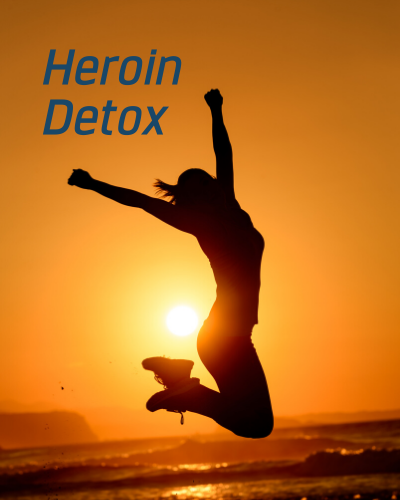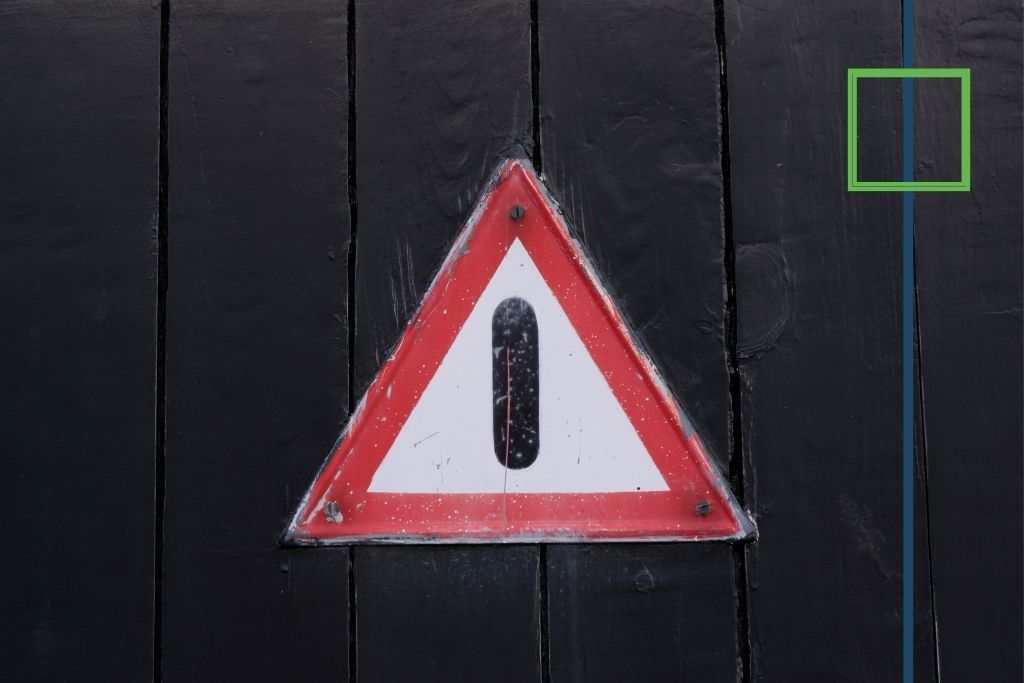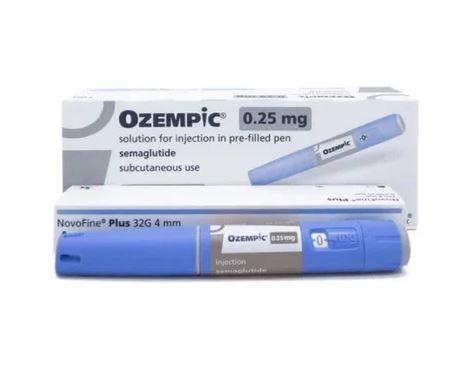What is Heroin?
Heroin is an opioid derived from morphine, a substance found in the seeds of poppy plants. Most people take heroin by injecting it into their arms through a needle. Heroin quickly reaches the brain and produces extreme feelings of pleasure, which is why it becomes addictive so quickly. But, the symptoms of heroin detox withdrawal can be painful and even deadly. The longer you use heroin, the more your body builds up a tolerance to the drug.
That means people have to take larger amounts to produce similar effects. Taking too much heroin to chase a high can lead to an overdose. According to the National Institute on Drug Abuse (NIDA) [1], the impact of Heroin use is felt all across the United States.
This means that Heroin is being identified as the most or one of the most critical drug use issues affecting several local regions from coast to coast. In addition, some medical complications from chronic Heroin use include insomnia, constipation, lung complications, sexual dysfunction.
What is Heroin Detox?
Various effective treatments and heroin detox are available for heroin use disorder, including both behavioral therapies and medications. Both approaches help recover a degree of normalcy to brain function and behavior, resulting in heightened contracting rates and a lower risk of HIV and other diseases and criminal behavior. Although behavioral and pharmacologic treatments can be helpful when utilized alone, research shows that blending both treatments is the most effective approach for many people. [2]
Long-Term Effects of Heroin Addiction
People who use heroin over the long term may develop the following health complications:
- Insomnia
- Collapsed veins for people who inject the drug
- Damaged tissue inside the nose for people who sniff or snort it
- Infection of the heart lining and valves
- Abscesses (swollen tissue filled with pus)
- Constipation and stomach cramping
- Liver and kidney disease
- Lung complications, including pneumonia
- Mental disorders such as depression and antisocial personality disorder
- Sexual dysfunction for men
- Irregular menstrual cycles for women
Heroin Addiction Diagnosis for Heroin Detox
Heroin addiction is opioid addiction and diagnosing any substance use disorder, including opioid use disorder, is done by a careful examination and assessment by a psychiatrist or psychologist. In some states, a licensed drug and alcohol counselor may make the diagnosis.
Generally, a variety of tests are used. These include lab tests like heroin blood or urine tests and a clinical interview.
If you speculate that you or someone you care about has a heroin addiction, speak with a professional. This can include a mental health professional like a licensed drug or alcohol counselor, social worker, physician, or psychiatrist.
We Make Heroin Detox Easier on You
Individuals who use these opiate substances, such as heroin, undergo chemical changes in their brains and often avoid the truth about their addiction. Unfortunately, this means it is often family and friends who eventually discover signs of heroin abuse. It is not easy getting a loved one to realize they have a heroin addiction and find a heroin detox program, but it could save their lives.
The most obvious way for a user to recognize that they have a heroin dependency, and probably an addiction, is when a powerful withdrawal symptom is experienced: cravings. Unfortunately, a user who encounters this symptom may already be in late-stage addiction and facing a challenging rehabilitation process.
One of the most common forms of heroin use is via intravenous injections. When injected, the drug effects are fast-acting. Injections direct the substance right into the bloodstream, triggering a rush of euphoria. Other effects that are quick to present include dry mouth, pale, flushed skin, constricted pupils, slowed respiration, and a lack of consciousness. Thoughts and memories become hard to form or hold on to because the chemicals in the brain are being affected. As a result, the ability to make judgments and maintain self-control is significantly impaired. Heroin use also takes a significant toll on the user’s immune system, making them sensitive to common colds and infections.
Heroin Overdose
Getting treatment to stop using heroin is so vital because of the high risk of overdose. Although drugs such as naloxone are available to prevent death from overdose, overdose rates from heroin use are still enormous in counts. In addition, a heroin overdose causes hypoxia: a sharp decline in breathing, which prevents the flow of oxygen to the brain. In some cases, an overdose can lead to coma, brain damage, and possibly death.

Skip To:
Learn more:
- Cocaine Detox
- Heroin Withdrawal
- Effective Opioid Addiction Treatment Options, Signs, Symptoms, Risks & Help
- How Long Does Heroin Stay In Your System? Urine, Blood Tests & Half Life Of Heroin
- Heroin Addiction Side Effects, Symptoms, & Treatment
- Signs of Drug Addiction
- Heroin Price, Purity, & Risky Effects of Addiction
- How Much is a Gram of Heroin? The High Price of Heroin Addiction
- Effects of Heroin Abuse – Physical, Behavioral, Psychological, & Social

Heroin addiction is a fatal, life-threatening disease that can cause irreversible effects on one’s health and relationships. Without help, this addiction will more than likely turn destructive. Immediate professional help and detoxing off Heroin is the only way to avoid injuring yourself or a loved one [3].
Opioid use disorder is a severe condition, but it’s treatable. Addiction doesn’t have to be continual or even long-term. There’s help out there, and there’s always a potential to recover for anyone who will seek help.
Heroin Drug Abuse Statistics
In 2020, heroin-involved overdose death rates decreased by nearly 7% 2019 to 2020. However, more than 13,000 people died from a drug overdose involving heroin in the United States, a rate of more than four deaths for every 100,000 Americans. The number of heroin-involved overdose deaths was nearly seven times higher in 2020 than in 1999. Almost 20% of all opioid deaths involved heroin.
626,000
Roughly 626,000 Americans had a heroin addiction in 2016.
Source: NIDA
60%
When someone uses heroin, they have a 50 to 60 percent chance of developing an addiction.
Source: NIDA
13,000
More than 13,000 people died from a drug overdose involving heroin in the United States.
Source: NIDA
Ask Dr. Al: How To Overcome Heroin Withdrawal? A Patient Recovery Story
Overcoming heroin withdrawal can be a challenging but crucial step towards recovery. It’s essential to seek professional medical guidance and support throughout the process. Medications such as methadone or buprenorphine can help manage withdrawal symptoms, while therapy and counseling can address the psychological aspects of addiction.
Surrounding oneself with a supportive network of friends and family, as well as engaging in healthy activities and self-care practices, can also play a vital role in managing the physical and emotional challenges of withdrawal. It’s important to remember that overcoming heroin withdrawal is a journey that requires patience and commitment. Still, with the right resources and support, it is possible to break free from the grip of addiction and start on the path to a healthier, drug-free life.
Heroin Detox Recovery Story Inspired By True Events
Dr. Al and the We Level Up Heroin detox treatment team played a pivotal role in helping a patient, who we will call Jane Doe, overcome her debilitating heroin addiction. Jane Doe’s journey to recovery began with her reaching out to Dr. Al and We Level Up for support. They conducted a comprehensive assessment of her addiction history and her physical and mental health, which allowed him to develop a personalized treatment plan. Jane Doe’s approach combined medication-assisted therapy, counseling, and a holistic wellness program.
They prescribed appropriate medications to manage Jane Doe’s withdrawal symptoms and cravings, making the early stages of recovery more manageable. Regular counseling sessions provided her with a safe space to explore the emotional and psychological aspects of her addiction. Dr. Al and We Level Up also encouraged her to engage in support groups, connecting her with peers who were going through similar struggles.
Furthermore, they emphasized the importance of positive lifestyle changes, including regular exercise, a balanced diet, and stress management techniques. Dr. Al and his team’s unwavering support and guidance instilled hope and motivation in Jane Doe, and over time, she gained the strength and skills to break free from the grip of heroin. Thanks to Dr. Al and We Level Up’s dedicated care and Jane Doe’s determination, she successfully achieved long-term sobriety, proving that with the proper treatment and support, recovery from heroin addiction is possible.
Introducing Dr. Al: A Specialist in Addiction Studies and Mental Health Disorders.
With over 15 years of expertise in behavioral health, Dr. Al has dedicated his career to transforming lives. He, his team, plus the We Level Up treatment center network have successfully guided countless patients through the most daunting obstacles they have ever encountered. Join Dr. Al and We Level Up on a journey toward healing and triumph. Learn more about Dr. Al here.

Heroin Drug Facts
Heroin
Heroin is an opioid drug made from morphine, a natural substance from the seed pod of the various opium poppy plants grown in Southeast and Southwest Asia, Mexico, and Colombia. Heroin can be a white or brown powder or a black sticky substance known as black tar heroin.
How do people use heroin?
People inject, sniff, snort, or smoke heroin. Some people mix heroin with crack cocaine, a practice called speedballing.
What are the effects of heroin?
Heroin enters the brain rapidly and binds to opioid receptors on cells located in many areas, especially those involved in feelings of pain and pleasure and in controlling heart rate, sleeping, and breathing.
Short-Term Effects
People who use heroin report feeling a “rush” (a surge of pleasure or euphoria). However, there are other common effects, including:
- Dry mouth
- Warm flushing of the skin
- Heavy feeling in the arms and legs
- Nausea and vomiting
Long-Term Effects
People who use heroin over the long term may develop the following:
- Insomnia
- Collapsed veins for people who inject the drug
- Damaged tissue inside the nose for people who sniff or snort it
- Infection of the heart lining and valves
- Abscesses (swollen tissue filled with pus)
- Constipation and stomach cramping
- Liver and kidney disease
Heroin Fast Facts Made Publicly Available by the National Drug Intelligence Center (NDIC) for Substance Use Disorder Awareness

Get Your Life Back
Find Hope & Recovery. Get Safe Comfortable Detox, Addiction Rehab & Mental Health Dual Diagnosis High-Quality Care at the We Level Up Treatment Centers Network.
Hotline (877) 378-4154Treatment for Heroin Overdose
Naloxone is a medicine that can treat an opioid overdose when given right away. It works by rapidly binding to opioid receptors and blocking the effects of heroin and other opioid drugs. However, sometimes more than one dose may be needed to help a person start breathing again, which is why it’s essential to get the person to an emergency department or a doctor to receive additional support if needed.
Naloxone is an injectable solution and nasal sprays (NARCAN® Nasal Spray and KLOXXADO®). Friends, family, and others in the community can use the nasal spray versions of naloxone to save someone who is overdosing.
In fact, the rising number of opioid overdose deaths has led to increased public health efforts to make naloxone available to at-risk persons and their families, first responders, and others in the community. In addition, some states have passed laws that allow pharmacists to dispense naloxone without a prescription from a person’s doctor. [4]
Get Help. Get Better. Get Your Life Back.
Searching for Accredited Drug & Alcohol Rehab Centers Near You? Or Mental Health Support?
Even if you have failed previously, relapsed, or are in a difficult crisis, we stand ready to support you. Our trusted behavioral health specialists will not give up on you. Call us when you feel ready or want someone to speak to about therapy alternatives to change your life. Even if we cannot assist you, we will lead you wherever you can get support. There is no obligation. Call our hotline today.
FREE Addiction Hotline – Call 24/7Heroin Detox Symptoms
- Nausea
- Sweats and Chills
- Soreness and Aching in Muscles and Bones
- Sinus Issues
- Fatigue and Loss of Energy
- Agitation and Restlessness
- Vomiting and Diarrhea
Symptoms for Severe Cases of Heroin Addiction
- Strong Cravings
- Depression
- Anxiety
- Increased Heart Rate
- Anxiety or Paranoia
- Muscle Spasms
- Respiration Issues
- Psychological Stress
- High Blood Pressure
What to Expect During Heroin Detox?
The detoxing from Heroin process may look unusual for someone who has only used heroin a few times than it would for someone who has used heroin habitually over several weeks, months, or years. The longer and incredible amounts an individual uses, the more stringent the process will be and the longer it will take to detox fully. In addition, the way the drug is taken may also influence the brain and body’s addiction to the drug and the overall detox process.
Basically, for some individuals, the detox period is over within 5-7 days. However, more high-level heroin addiction could mean a detox period several days longer. Therapy, counseling, and medical treatment are all parts of a medically assisted detox program. This structured and administered detox program helps create a more peaceful drug transition and reduces the risk of complications.
Common Health Risks
- Heart damage
- Dysfunctional Cognitive Abilities
- Kidney Disease and Kidney Failure
- Conditions due to needle sharing (HIV, Hepatitis)
- Collapsed veins
- Skin Infections and Abscesses
- Liver Disease
- Lung Complications
- Pneumonia
First-class Facilities & Amenities
World-class High-Quality Addiction & Mental Health Rehabilitation Treatment
Rehab Centers TourRenowned Addiction Centers. Serene Private Facilities. Inpatient rehab programs vary.
Addiction Helpline (877) 378-4154Proven recovery success experience, backed by a Team w/ History of:
15+
Years of Unified Experience
100s
5-Star Reviews Across Our Centers
10K
Recovery Success Stories Across Our Network
- Low Patient to Therapist Ratio
- Onsite Medical Detox Center
- Comprehensive Dual-Diagnosis Treatment
- Complimentary Family & Alumni Programs
- Coaching, Recovery & Personal Development Events
Medically-Assisted Heroin Detox
The detox from Heroin process may look different for someone who has only used Heroin a few times than it would for a person who has used Heroin habitually over several weeks, months, or years. The longer and great amounts an individual uses, the more severe the process will be and the longer it will take to fully detox. In addition to these factors, how the substance was ingested can also play a role in affecting how dependent the brain and body have become on the drug, as well as the overall detox process.
Medication assisted treatment (MAT) for Heroin Detox
Medications can be helpful in this detoxification stage. This is to ease craving and other physical symptoms that can often prompt a person to relapse.
Medication assisted treatment (MAT) can be considered by all individuals seeking treatment for heroin addiction. Drugs such as Suboxone, Zubsolv, and Vivitrol may aid heroin users in their recovery.
- Lofexidine. FDA-approved, a non-opioid medicine designed to reduce opioid withdrawal symptoms. It is the primary medication for detoxification and heroin detox withdrawal symptoms.
- Methadone (Dolophine or Methadose) is a slow-acting opioid agonist. Methadone is taken orally so that it reaches the brain slowly while preventing withdrawal symptoms. Methadone is only available through approved treatment programs, where it is dispensed to patients on a daily basis.
- Buprenorphine (Subutex). FDA approved. Buprenorphine relieves drug cravings without producing the “high” or dangerous side effects of other opioids. Suboxone is a novel formulation of buprenorphine that is taken orally and contains naloxone (an opioid antagonist) to prevent attempts to get high by injecting the medication.
- Naltrexone (Vivitrol). FDA approved. It is a medication primarily used to manage alcohol or heroin addiction by reducing cravings and feelings of euphoria associated with substance abuse. Heroin addicted person should not receive naltrexone before detoxification.
- Naloxone should be given to any person who shows signs of an opioid overdose or when an overdose is suspected. It can be given as a nasal spray or it can be injected into the muscle, under the skin, or into the veins.
World-class, Accredited, 5-Star Reviewed, Effective Addiction & Mental Health Programs. Complete Behavioral Health Inpatient Rehab, Detox plus Co-occuring Disorders Therapy.
CALL (877) 378-4154End the Addiction Pain. End the Emotional Rollercoaster. Get Your Life Back. Start Drug, Alcohol & Dual Diagnosis Mental Health Treatment Now. Get Free No-obligation Guidance by Substance Abuse Specialists Who Understand Addiction & Mental Health Recovery & Know How to Help.
Most Popular Heroin Detox FAQs
-
How long does it take to detox from Heroin?
If you are wondering, “how long to detox from Heroin?” or “how to detox off Heroin?”, the answer is while the length of time required to detox from substances varies from person to person, detox programs often last 3 to 10 days, depending on the severity of the medical condition.
-
How to detox from Heroin?
So how long does the detox from heroin take? Although each person’s experience will be unique, there is typically a broad timeframe for heroin detox during the first few days and weeks after someone stops using.
-
Can you do Heroin detox at home?
You don’t have to go to a facility or participate in a treatment program to go through the natural drug detox process; you can do it at home. Although this alternative may seem alluring, it typically has a greater failure rate because it’s simple to relapse without the assistance of a treatment team.
Heroin Addiction Treatment near me
There are multiple ways to treat heroin addiction starting with heroin detox. Medication such as Methadone, Subutex, and Suboxone allows an individual to be weaned off of heroin without the full withdrawal effects. However, medication-assisted treatment is debatable as these medications are addictive in themselves. In fact, the ideal treatment option is abstinence. This is a challenging route, as detox for Heroin can be very uncomfortable and triggers severe cravings. However, getting clean is the ultimate goal, and this is the favored route for many.
The We Level Up New Jersey Herion Treatment team specializes in creating an ideal environment and providing effective therapies to help heroin addicts recover. Most importantly, we will develop a personalized treatment plan and lead you to recovery. So, get started today!
If you think you or a loved one has developed an addiction to heroin, communicate with us today, and we will help you reclaim your life. We can help you with an assessment and provide further resources for help and recovery.

Experience Transformative Recovery at the We Level Up Treatment Center.
See our authentic success stories. Get inspired. Get the help you deserve.



Start a New Life
Begin with a free call to an addiction & behavioral health treatment advisor. Learn more about our dual-diagnosis programs. The We Level Up treatment center network delivers various recovery programs at each treatment facility. Call to learn more.
- Personalized Care
- Caring Accountable Staff
- World-class Amenities
- Licensed & Accredited
- Renowned w/ 5-Star Reviews
We’ll Call You
Sources:
[1] NIDA – https://www.drugabuse.gov/publications/research-reports/heroin/scope-heroin-use-in-united-states
[2] NIDA – https://www.drugabuse.gov/publications/research-reports/heroin/what-are-treatments-heroin-use-disorder
[3] NIH – https://medlineplus.gov/ency/article/002861.htm
[4] NIDA – https://www.drugabuse.gov/publications/drugfacts/heroin
[5] We Level Up – Heroin Detox » We Level Up Treatment Center » Drug Alcohol Addiction Rehab
National Institute on Drug Abuse. (2021, April 13). What is heroin and how is it used?
National Institute on Drug Abuse. (2022, January 26). What is the scope of heroin use in the United States?
National Institute on Drug Abuse. (2021, April 13). What are the long-term effects of heroin use?.
Substance Abuse and Mental Health Services Administration. (2015). Detoxification and substance abuse treatment. Treatment Improvement Protocol (TIP) Series, No. 45. HHS Publication No. (SMA) 15-4131. Rockville, MD: Center for Substance Abuse Treatment, 2006.





